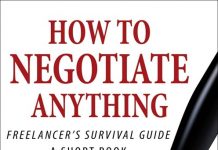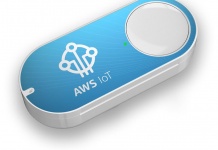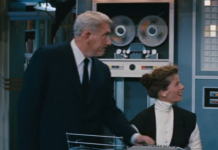 The Beloved and I have had many an amusing conversation about how we would explain the technology of our youths to the children in our lives. I think they will find the computer mouse hilariously quaint, and the notion that if you wanted to phone somebody and they were not home, that was it will I am sure shock and horrify them.
The Beloved and I have had many an amusing conversation about how we would explain the technology of our youths to the children in our lives. I think they will find the computer mouse hilariously quaint, and the notion that if you wanted to phone somebody and they were not home, that was it will I am sure shock and horrify them.
Lately, I have been wondering if the notion of purchasing media and having a copy to ‘own’ might be going the way of the dodo bird too. We each have our little hobbies; when the Beloved is messing with his baseball cards and carefully looking up the stats online, I am invariably messing with my Calibre library—adding books, updating metadata and importing pretty cover art so I can browse my ebooks as if they were a physical shelf. I enjoy it and I get satisfaction out of ‘owning’ so many books…
But I used to get satisfaction out of owning movies too. And when the whole TV series DVD boom was in full swing, the notion of being able to watch the entire run of Buffy or Star Trek—whenever I wanted to!—was revolutionary. And now? When I moved in with him. I brought with me my Netflix subscription, and have never looked back. And ironically, among the hundreds of available series in the TV show section are Star Trek and Buffy…
So, now I have been reading news stories about Oyster, the new ‘Netflix for books’ app that was released to much hype. I know it’s not 100% there yet—users have complained that there is no Android version, and not all publishers are on board with the content yet. But it is such a great idea. And I wonder if the tiny children in our lives will grow up with this model being ever more prominent. If you could access the books you wanted to read any time you wanted them, why would you care about owning it or not? Is the idea that their parents used to value having a file to keep for themselves going to seem quaint to them?
Not everyone has the same entertainment tastes, of course. But these services can be remarkably cost-effective for a household. I don’t care about music, so I will let him pay the $20 if he wants it for the Sirius radio subscription. I could spend my $20 on Oyster and Netflix and be good to go. And we’ve each spent less than the cost of a single hardback to do it.
I think these services will grow and refine themselves, just as Netflix has done, just as Pandora has done, just as Sirius got people to listen to radio again, and pay for it to boot. And I think the kids will find the idea of ‘downloading’ to be as quant as the idea of driving to a store to rent a plastic disk.

































I think that this is a possible future but there are factors at work that could confound the idea that owning media will one day disappear entirely. Those factors include such things as:
o Media that idiosyncratically represents an important milestone. You just know that you want to revisit that feeling or thought in future but suspect that it might not be available when that need arises. Like that song that played on the radio that you were compelled to buy so that you could listen to it when it was no longer popular, legal or what not. The future is so hard to predict.
o Media that you want to analyze in ways that are not possible with mainstream delivery methods. Like that movie that you wanted to dissect frame-by-frame, that eBook you wanted to programmatically compare with the rest of your collection using some not yet invented software. Maybe Google will one day offer to do this for you but you shudder at the thought of releasing insights into yourself that you aren’t yet aware of yourself.
Others may add to this short list.
In the future, you may not want to have such access to everything that you read, heard and viewed in the past. Since we may not be able to accurately predict what those future retrospective yearnings might be, what do we do? How do we collect and curate the memories we will want to reflect upon or the analyses we might be able to do and want to do?
Relinquishing ownership has important consequences that need to be considered carefully. Short run hedonism is often a source or regret later in life.
You’re assuming a future where Internet access is ubiquitous and never fails. A future in which everything you want to read, watch or listen to remains available online forever. A future where everyone can afford to pay all over again whenever they want to rewatch a movie.
No, seriously?
I think it very likely you are right. If we can read any book we’d want to, at any time, why own it? We don’t own the books or media we license the rights to access from Amazon or iTunes either. We seem to be ok with a promise of perpetual access when we hit “buy.” Maybe we feel better because we can store the bits locally, and access them when our broadband connection is out. It’s kind of like stockpiling dehydrated food for the zombie apocalypse. My son won’t inherit my electronic library when he gets all of my 80’s paper comic books either. But we still hit “buy.” The scariest thing about broadcast fiction/nonfiction is all the crap that might get bundled into the batch. “300 channels and nothing to watch” could easily become “200,000 books and nothing to read” 😉